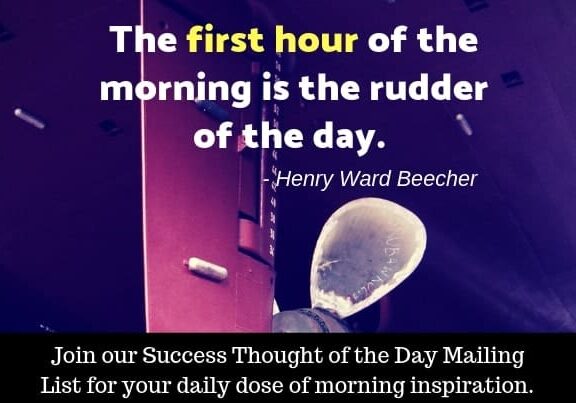Caring For Yourself And Others As A Leader

The first half of 2020 has been a ride that none of us could have anticipated. As Covid-19 struck, took hold, changing the way we live and work, the tragic death of George Floyd signaled an outcry, recalling a series of recent events, declared a racism pandemic by the American Psychological Association. The need for self-care could not be more critical.
In this week’s episode of The Corelink Solution, we get to pick the mind of Shola Richards, a positivity writer, and workplace civility expert who’s turned his struggles and mental trauma in life into a rallying cry for change in the workplace. From film to Silicon Valley, government offices to healthcare organizations, Shola’s words have touched many lives – and now, he gets to share his transformative story with us.
Shola’s thoughts on self-care and mindfulness can trace their origins to some of the darkest times of his life, including clinical depression, toxic work environments, being bullied, and even an attempt at suicide. It was during his darkest moment that he realized that he couldn’t be the only person going through this experience, and this became Shola’s driving force, his why.
In this episode, Shola Richards presents ideas that you can implement to become a more compassionate leader. These ideas include lots of self-love, conserving one’s energy, and prioritizing which events in your life need attention. We also discuss several actionable items that you and your team can work on together, like putting together start-stop-continue lists – things/behaviors that one should start, that one should stop, and that one should keep on doing so – in order to get the most value out of your team’s time.
With tensions high due to recent events and the nation experiencing many bouts of civil unrest, empathic leadership in times of crises seems to be not only a necessity in the workplace, but a responsibility for each person within a community, and on a larger scale, within our entire country.
Self-love Isn’t Just For The Self.
Other than some R&R, Shola says self-care requires some heavy work too and being mindful of one’s intake: setting boundaries, distancing from social media, removing toxic influences from your life.
“Start thinking about the people in your life who fill you up and the people who drain you. Man, real talk. I mean, if you keep people in your life who drain you consistently, it’s just going to wither away at your mental health… Until we get to the point where we realize that we need to take care of us so we can be better humans, so we can go ahead and fight the battles that need to be fought, whether it’s the civil unrest or racism or all these things that are going on, we’re not going to be able to do it if we’re broken and unwell ourselves.”
From here, the effects of self-love then extend to those in your immediate circle – your family, your friends, your team. If they see you taking care of yourself, they’re likely to follow your example. Self-love also lessens chronic stress and allows you to create a positive environment for you and your team. This positive environment cultivates psychological safety, which means that people feel safe around you and are unafraid to speak, share, and bring forth new ideas.
Six and Six Rule
With so many unpredictable factors in the world today, it seems like there’s always something to ruin one’s happiness. Shola says that managing one’s happiness during times of crisis is a matter of focusing on the things that you can control: your actions, your effort, and your attitude.
To help himself focus on what’s within his control, Shola shares a straightforward technique that he likes to call the six and six rule:
“If what you’re worried about right now will not be a big deal six months from now, then do not spend any more than six minutes of your time thinking about it.”
Is This Useful?
Downward spirals and self-criticisms are inevitable, especially during times of crisis. While it’s common to kick yourself a little for small mistakes, Shola says it’s pretty useless to kick yourself too much. The next time you hit that downward spiral and beat yourself up about something, pause for a second and ask yourself: Is this useful? Is it helpful to continue to beat myself up about this?
“‘Life is too short to spend another day at war with yourself.’ And I think that if we really do want to change the world, it starts with the world we need to change internally. And if we’re not going to be kind to ourselves, through this journey, we’re not going to be able to be good humans. It requires us to start with ourselves.”
Be the Buffalo
Shola also retells an endearing story from his father, who Shola describes as Mufasa (The Lion King) incarnate. The story centers on a cow and a buffalo in a storm. The cow attempts to run away from the storm, not knowing that running away only prolongs the inevitable. The storm eventually catches up. The buffalo, however, heads straight for the storm, knowingly and consciously. In doing so, the buffalo gets through the storm faster and comes out of the storm stronger. This story mirrors how adversity, both externally and internally, shapes us. In entering our storms, Shola advises to examine behaviors and deep beliefs that don’t serve you.
“My thought is you need to go into the storm. This is an important one, go inside and do what’s uncomfortable, that really uncomfortable work, because you’re going to do self-care as a leader, as a human being. If you have beliefs that weaken you for the fights that are coming, and there are so many, you’re not going to be at your optimum level to be able to serve yourself and others, so you need to look at these beliefs.”
You can watch or listen to the entire podcast here.




